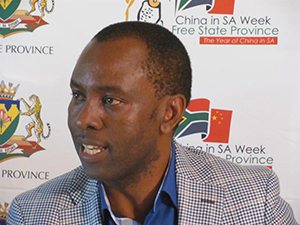
[miningmx.com] – THE mines portfolio in South Africa since democracy in 1994 has been reasonably stable with no minister serving less than about three years; except those MPs caught in transitional periods.
Pik Botha (1994 – 96) served two years in Nelson Mandela’s cabinet before being replaced by Penuell Maduna, and Lindiwe Hendricks, who was in Thabo Mbeki’s second cabinet before his recall by the ANC, served a bit less time in office.
That is until Ngoako Ramatlhodi, the former Limpopo province premier, who sat in the mining hotseat for a mere 16 months – some of them quite spectacular – until his replacement last month by the newly inaugurated MP Mosebenzi Zwane.
Much as been made of Zwane’s links to the Gupta family, his inexperience, and his role in a dairy farming scheme that attracted negative attention, but the reality of politics in South Afroca, especially the mining beat, is that ANC ideology trumps the decisions of the government. Should then too much attention be paid to his relative inexperience?
Ramatlhodi learned the perils of discretion, it would seem. Twice he departed from the ANC script by first attempting to have the National Union of Mineworkers and the Association of Mineworkers & Construction Union (AMCU) strike a compromise with platinum company bosses during the five month strike in 2014 – an brow-raising debut until he was slapped down by Gwede Mantashe for seeking to placate AMCU.
“I think Ramatlhodi was quite an independent minded minister,” said Peter Leon, a partner at Webber Wentzel, an attorneys. “This was particularly noticeable in his treatment of and relationship with AMCU, a stark difference from [Susan] Shabangu (2011 – 2014),’ he said.
The second was agreeing with the Chamber of Mines to jointly seek a legal ruling on an important aspect in the mining charter on whether defunct empowerment deals still scored mining companies points.
It is thought the ANC didn’t much like the overly reconciliatory tone of the agreement and Ramatlhodi subsequently reneged on agreements with the chamber, and ruined the sense of entente, that is thought to have been motivated by the ANC.
In any case, Ramatlhodi leaves the mining sector more uncertain than he found it albeit it by dint of his early departure.
As matters currently stand, amendments to the Minerals & Petroleum Resources Development Act are marooned somewhere in the parliamentary process, while plans for a national mining champion, and the State-Owned Mining Company (SOMCO) bill are equally in limbo – all of which were brought to bear during Ramatlhodi’s tenure.
It’s for Zwane to give them fresh momentum whilst juggling the pressures of gold and coal wage negotiations – not yet concluded while AMCU stands outside of them – and the overseeing of job retention initiatives even as commodity prices continue to struggle.
There’s also Project Phakisa – a think-tank backed by President Jacob Zuma – which will weigh up the perennial issues of social delivery, labour practices and the like.
“The various initiatives actioned by Ramatlhodi and which are now potentially lying in a heap are a direct and simple consequence of the priority being focused on political and personal agendas, not an economic growth agenda,” said Bruce Falcon, a director of Falcon Hume Inc Attorneys.
He doesn’t agree that ideaology is more important than the minister standing before; therefore, the personality and judgement of Zwane will be crucial over he coming months.
“Obviously, there is some concern about Zwane coming in,” said Nicola Jackson, a partner at Fasken Martineau. “He is a relatively unknown factor and the industry will be concerned about where policy could now be headed,” she said.
“Ramatlhodi had a sense of what needed to be done to get the industry back on its feet whilst being alive to the challenges to local economic growth,’ said Jackson. “Although there was some conflict between him and the industry, you got the sense that both sides were starting to find a way to navigate through issues.”










